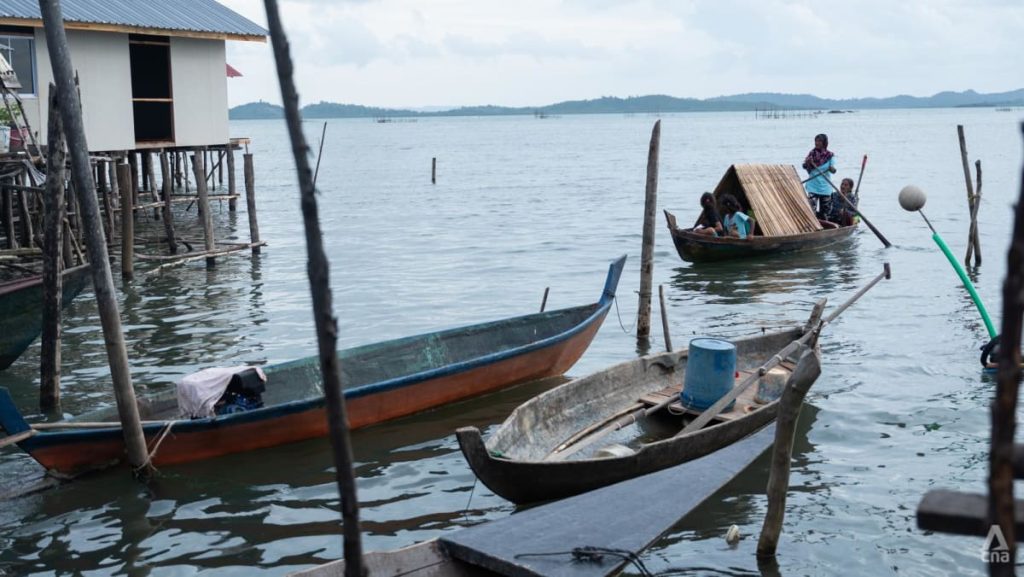Orang Laut, a nomadic sea-faring community in Batam, Indonesia, is facing challenges due to climate change and depleted marine resources. In the past, they were able to catch large amounts of squid and fish, but now their haul has significantly decreased. In response, the government is providing support to help them adapt, including outboard motors for faster travel and training for fish farming. However, in exchange, they are being asked to give up their nomadic lifestyle, which has been seen as primitive and outdated.
Since the 1990s, the government has been encouraging Orang Laut to settle in specific areas, providing them with houses, schools, and healthcare. This shift has led to a significant change in their culture and traditions. Many communities have become completely sedentary, with traditional rowboats no longer in use. The younger generation is growing up with access to education and social services, but at the cost of losing their ancestral way of life. Some older members of the community still hold on to memories of the past, but the reality is that the traditional practices are fading away.
Despite the government’s efforts to improve the living conditions of the Orang Laut, the transition to a settled life is not without challenges. Many in the community are struggling to adapt to the new way of living, as their livelihoods and identities were deeply tied to their nomadic lifestyle. The loss of fishing grounds and marine resources has also made it difficult for them to sustain themselves through traditional means. This has led to a sense of loss and disconnection from their heritage, as they navigate the complexities of modern society.
For those who have managed to retain some elements of their nomadic lifestyle, changes are still evident. Smaller rowboats are being used, and fishing expeditions are now undertaken mainly by men, leaving women and children behind. This shift reflects the changing dynamics within the community, as traditional gender roles and responsibilities evolve in response to external pressures. While some Orang Laut have managed to find a balance between tradition and modernity, others continue to grapple with the impacts of forced settlement and changing environmental conditions.
The plight of the Orang Laut serves as a poignant reminder of the challenges faced by indigenous communities in the face of rapid development and environmental changes. As governments and organizations work to address these issues, it is crucial to ensure that the voices and needs of these communities are heard and respected. By promoting sustainable practices and supporting cultural preservation, it might be possible to find a way forward that honors both the past and the future of the Orang Laut and other marginalized groups.


